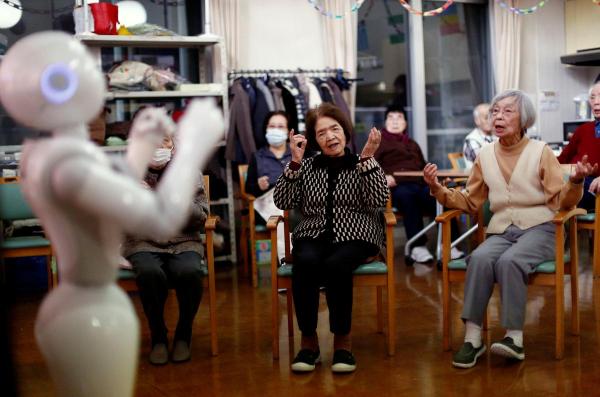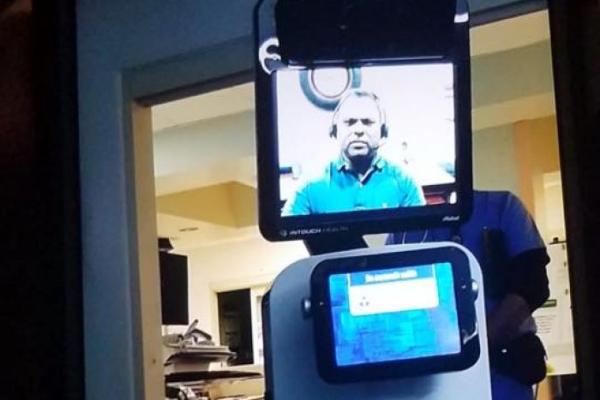Robots caring for the elders. Or for growth?
Robot nurses and doctors. How will they be managed?
This year, for the first time in history, there are more human beings over the age of 65 than under the age of five. In many parts of the world, those crowds of senior citizens will have fewer doctors to care for them. Alzheimer’s rates are expected to double every 20 years. Will adults have a better time? Apparently, yes.
“Grey” workers, for example, that is workers more than (I guess) 45 / 50 years old but not old enough to retired, have nothing to worry! They hold the key to manufacturing’s future! At least in some countries, there will soon be a really big shortage of manufacturing jobs, all accessible to them.
Nah. No way. But let’s care for the elders for now.
Don’t worry, the robots are coming

<u><em><strong>CAPTION:</strong>
<a href="https://www.reuters.com/article/us-japan-ageing-robots-widerimage/aging-japan-robots-may-have-role-in-future-of-elder-care-idUSKBN1H33AB" target="_blank">Robot-assisted elder care in Japan</a>
</em></u>
An increasingly popular solution to aging with less doctors and nurses around is to assist elder citizens with robots. Because “As long as humans remain in full control to prevent any danger, robots might well be the future of care.” OK, now I feel good. Not.
The problem is NOT robots assisting the elder
This is not a luddite, point blank refusal robot-powered senior care. At this point it may objectively be unavoidable, that is better than not having any care at all, in many, many cases. All digital technologies, not just robots, can surely play a very positive role here. The problem (as it always happens) is not technology.
The problem is why and how senior citizens are managed as a problem. Because it deeply warps how robots, or any other technology, are developed, deployed and “fully controlled” to assist senior citizens.

The fact that there are more 65-years old people than kids is a major problem because of its “widespread consequences for productivity, inflation, and global growth”. One of the reasons why increasing rates of Alzheimer are bad is that “Alzheimer’s already consumes 1 percent of global GDP”. Global Growth. Global GDP.
In such a landscape, the problem is if only technology that increases GDP is considered as a solution. Even ignoring any ethical issue, such a strategy is likely pointless, in the long run, because GDP will decrease anyway exactly because of global aging.
The problem is not that humans left with robots Because “As long as humans remain in full control to prevent any danger, robots might well be the future of care.”
The problem is that, even today, many of the people who can afford hospitals, but only in their “basic” version of hospitals already risk to die alone in front of a robot.
The problem is that as long as the “humans in full control” of elder care will be the same kind of humans in full control today, robots may be used not because there are not enough human nurses, but because they are cheaper.
Who writes this, why, and how to help
I am Marco Fioretti, tech writer and aspiring polymath doing human-digital research and popularization.
I do it because YOUR civil rights and the quality of YOUR life depend every year more on how software is used AROUND you.
To this end, I have already shared more than a million words on this blog, without any paywall or user tracking, and am sharing the next million through a newsletter, also without any paywall.
The more direct support I get, the more I can continue to inform for free parents, teachers, decision makers, and everybody else who should know more stuff like this. You can support me with paid subscriptions to my newsletter, donations via PayPal (mfioretti@nexaima.net) or LiberaPay, or in any of the other ways listed here.THANKS for your support!